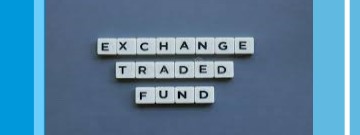
An Exchange Traded Fund (ETF) is a collection of securities (generally stocks) designed to track an underlying index. This index may follow a group of stocks in a given industry, grouped by size or other identifiable characteristics, geographical region, or may be part of a specific investment strategy.
In addition, Exchange Traded Fund‘s may now be based on financial products such as index funds, interest rates or provide a way to track market volatility. ETF’s can contain many types of investments, including stocks, futures, options, commodities, bonds, or a mixture of investment types. They may also have exotic features such as the ability to use leverage or operate inversely to the market. That is, operating similar to a short position where the value of the ETF goes up as the underlying asset goes down.
Exchange Traded Funds offer both tax efficiency as well as lower transaction and management costs whilst combining the valuation feature of a mutual fund or unit investment trust. Although there are well over a thousand ETF’s available, many of these do not trade sufficient volume to be considered a viable investment.
Exchange Traded Fund Example
The best-known example is the SPDR S&P 500 ETF (SPY). An index fund which tracks the S&P 500 Index. Exchange Traded Funds can be traded like regular stocks regardless of the financial instrument they refer to. Merger Arbitrage Limited reports on the performance of this ETF in the weekly Merger Arbitrage Performance & Analysis updates. The IQ Merger Arbitrage ETF (MNA) is the most well known Exchange Traded Fund covering merger arbitrage which we discussed at length in our article “IQ Merger Arbitrage ETF Review“.
In addition to U.S. Exchange Traded Funds, UCITS ETFs are products which are domiciled in European Union and subject to the Undertakings for the Collective Investment in Transferable Securities regulation. UCITS ETF’s are growing rapidly due to the benefits they provide. As the mark of stable and well-regulated investment products, including diversification features such as the 5 10 40 rule, they are becoming increasingly relevant outside the EU, most notably in Switzerland, South America and Asia.
Additional Resources
Ultimate ETF Guidebook: A Comprehensive Guide to the World of Exchange-Traded Funds – Including the Latest Innovations and Ideas for ETF Portfolios by David Tuckwell is a great resource for those wishing to learn more about ETF’s.
So as not to show favoritism, three prominent Exchange Traded Fund websites with similar services and information are
- ETF.com – ETF Screener & Database
- ETF Channel – The Web’s Best ETF Screener
- ETF Database – The Original & Comprehensive Guide to ETFs
